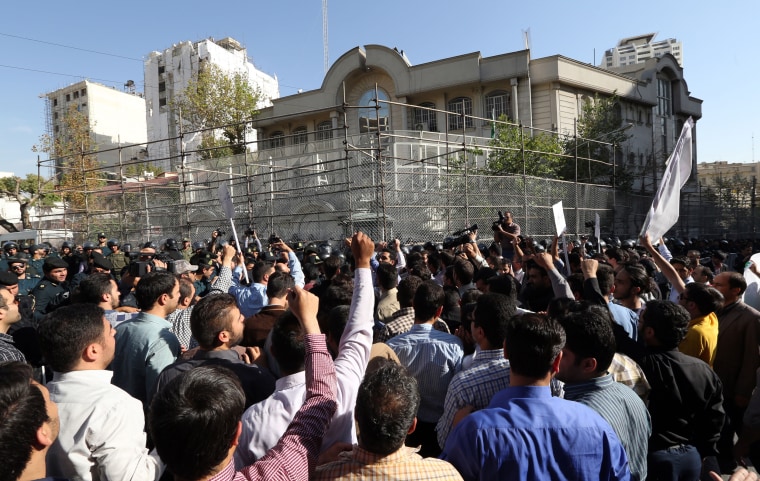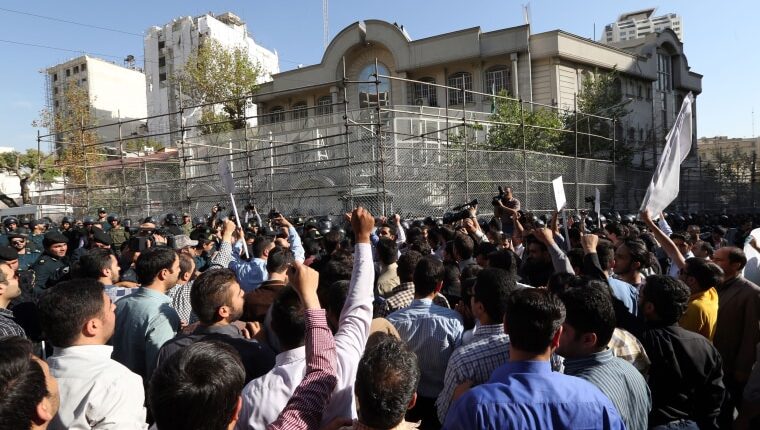Iran and Saudi Arabia agreed Friday to restore diplomatic relations, a surprise breakthrough after years of soaring tensions between the regional rivals.
The deal, which will see the two countries reopen embassies in each other’s capitals, was sealed during a meeting in China — a boost to Beijing’s efforts to rival the United States as a broker on the global stage.
The deal was first announced on Iranian state TV and later outlined in a joint communique from Tehran, Riyadh and Beijing that was published by the Saudi Press Agency, the country’s official news agency.
It came after intensive negotiations between Ali Shamkhani, a close adviser to Iran’s supreme leader Ayatollah Ali Khameni, and Saudi Arabia’s Minister of State Musaad bin Mohammed Al-Aiban, the statement said. They took place because of a “shared desire to resolve the disagreements between them through dialogue and diplomacy, and in light of their brotherly ties,” it said.
It added that the foreign ministers from both countries would “meet to implement this, arrange for the return of their ambassadors, and discuss means of enhancing bilateral relations.”
Tensions have simmered between Sunni Muslim powerhouse Saudi Arabia and Iran, which is majority Shia, for decades.
The two countries have been locked in an intensifying struggle for regional dominance, their rivalry exacerbated by religious differences and the war in Yemen in which both countries are deeply entrenched.

Saudi Arabia, the birthplace of Islam, has historically seen itself as the leader of the Muslim world, but this was challenged after the Islamic Revolution in Iran in 1979.
The kingdom broke off ties with its neighbor in 2016 after protesters stormed some of its diplomatic posts in the country and set fire to the Saudi Embassy in Tehran.
Days earlier, Saudi Arabia had executed the prominent Shia cleric Nimr al-Nimr.
“Clearing up the misunderstandings and looking to the future in Tehran-Riyadh relations will definitely lead to the development of regional stability and security and the increase of cooperation between the countries of the Persian Gulf and the Islamic world to manage the existing challenges,” Shamkhani said Friday after signing the deal, according to Press TV.
Source: | This article originally belongs to Nbcnews.com









